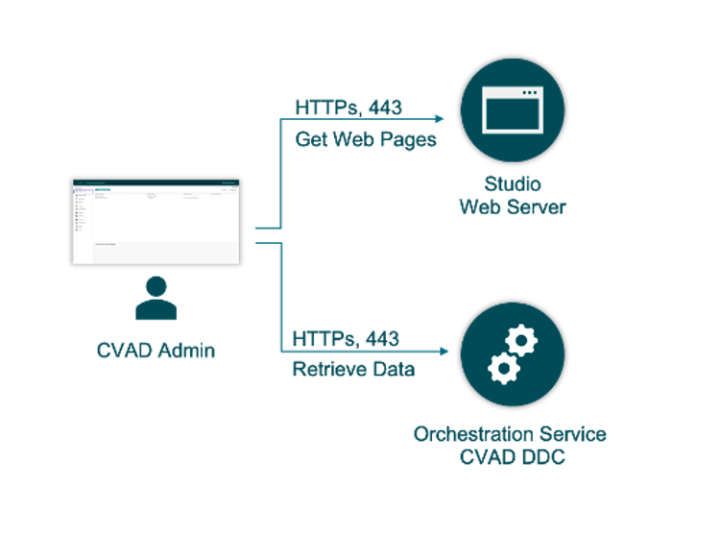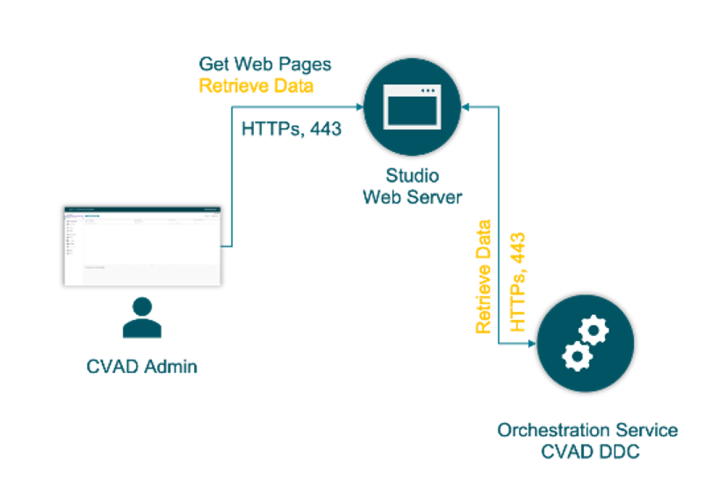It has only been a month since Citrix announced our strategy to support “Hybrid as the Destination”, an initiative to develop features both for on-prem and cloud customers, and already we are pleased to announce that Web Studio is now generally available for all Citrix customers! Regardless of the deployment scenarios, our customers now share the same modernized admin experience when using both Citrix DaaS and/or Citrix Virtual Apps and Desktops (CVAD) on-prem deployments.

Straightforward Installation
Shipped in the CVAD 2303 release, the initial setup experience is seamlessly integrated into the current CVAD installer. Customer admins can install Web Studio in the same straightforward way they install Desktop Studio, the legacy management interface based on Microsoft Management Console technology. By default, the installer makes sure all prerequisites are deployed.
However, if you would like to customize the setup in an advanced manner, there are a couple of things to consider:
- Security: Because Web Studio only supports secure connections, when the installer prepares the Internet Information Service (IIS), by default it creates a self-signed certificate. It is always recommended to use a trusted enterprise certificate – customer admins can use IIS management tools to do so.
- Delivery Controllers: It is recommended to deploy Web Studio with the same version of delivery controllers. In future releases, we plan to keep Web Studio backward compatible with certain older versions of delivery controllers.
Deployment Options
Depending on your use cases, Web Studio supports two deployment architectures: an integrated deployment option and a proxied deployment option.

The integrated deployment option requires the endpoint device (where the admin opens a browser to access the Web Studio console) has access to both the web server hosting web studio pages and the delivery controllers providing API orchestration service.

In the proxied deployment option, the endpoint device only needs access to the web servers, so that the delivery controllers could be deployed behind a firewall in the trusted network.
The integrated deployment option uses the same model as Desktop Studio. This option is recommended when you don’t want to set up additional web servers to host the management console, as Web Studio and delivery controller are installed on the same server. By default, the installer uses this option. To switch to proxied option, you need to use the StudioConfig tool.
REST APIs
In case you missed it, we announced the general availability of REST APIs in the CVAD 2212 release, so now REST APIs are generally available for both Citrix DaaS and CVAD on-prem! Web and Desktop Studios are both built on top of REST APIs. For each function in the Web Studio, there is a corresponding REST API.
It’s important to know that REST APIs specifically for on-prem CVAD are hosted via the Citrix Orchestration Service installed on the delivery controllers. All APIs share the same schema as the cloud-based REST APIs. This means going forward enterprise admins only need to create one set of automation tools to work for both Citrix DaaS and CVAD with minimal changes.
The major difference between cloud and on-prem APIs is authentication – on-prem REST APIs use bearer tokens in all API requests. You can read this document to get more insight on how bearer tokens are generated for the on-prem REST APIs.
To try out these new capabilities, download CVAD 2303 today – and stay tuned as we develop more improvements and features to support your hybrid deployment!


